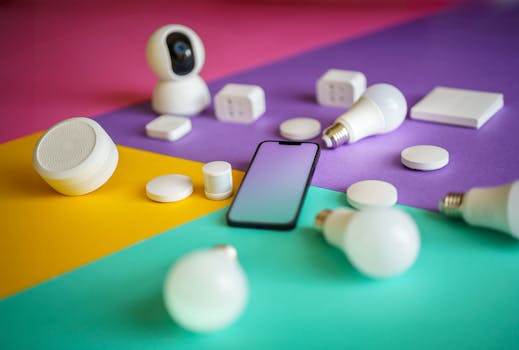
Home Automation in 2025: The Smart Home Ecosystem
Introduction to Home Automation

Home Automation in 2025: The Smart Home Ecosystem is revolutionizing the way we live and interact with our homes. With the increasing demand for convenience, security, and energy efficiency, home automation has become a vital aspect of modern living. In this article, we will explore the latest trends and advancements in home automation, creating a seamless and integrated smart home ecosystem.
What is Home Automation?

Home automation refers to the use of technology to control and monitor various aspects of a home, including lighting, temperature, security, and entertainment systems. This is achieved through a network of devices, sensors, and controllers that communicate with each other to create a smart and responsive environment.
Key Components of Home Automation

The key components of home automation include:
- Sensors: These detect and measure various parameters such as temperature, humidity, and motion.
- Controllers: These receive data from sensors and send commands to devices to perform specific actions.
- Devices: These are the appliances and systems that are controlled and monitored, such as lights, thermostats, and security cameras.
- Hub: This is the central unit that connects and integrates all the devices and sensors, allowing for seamless communication and control.
Benefits of Home Automation

The benefits of home automation are numerous, including:
- Convenience: Home automation allows for easy control and monitoring of various aspects of the home, making life more convenient and comfortable.
- Energy Efficiency: Home automation can help reduce energy consumption by optimizing lighting, heating, and cooling systems.
- Security: Home automation can enhance security by providing real-time monitoring and alerts, as well as automated door locks and alarm systems.
- Cost Savings: Home automation can help reduce energy bills and extend the lifespan of appliances and systems.
Smart Home Devices and Systems

Some popular smart home devices and systems include:
- Amazon Echo and Alexa
- Google Home and Google Assistant
- Apple HomeKit
- Samsung SmartThings
- Nest Thermostat
- August Smart Lock
- Ring Doorbell Camera
Home Automation and the Internet of Things (IoT)

Home automation is closely tied to the Internet of Things (IoT), which refers to the network of physical devices, vehicles, and other items that are embedded with sensors, software, and connectivity, allowing them to collect and exchange data.
Security and Privacy Concerns

As with any connected device, there are security and privacy concerns associated with home automation. It is essential to take measures to protect your home network and devices from hacking and data breaches.
Conclusion

In conclusion, Home Automation in 2025: The Smart Home Ecosystem is a rapidly evolving field that is transforming the way we live and interact with our homes. With its numerous benefits, including convenience, energy efficiency, security, and cost savings, home automation is becoming an essential aspect of modern living. As technology continues to advance, we can expect to see even more innovative and integrated smart home solutions in the future.






